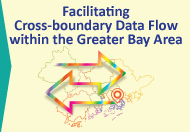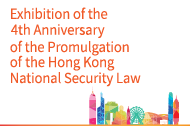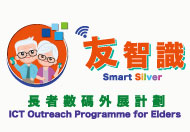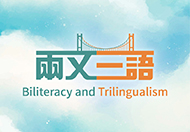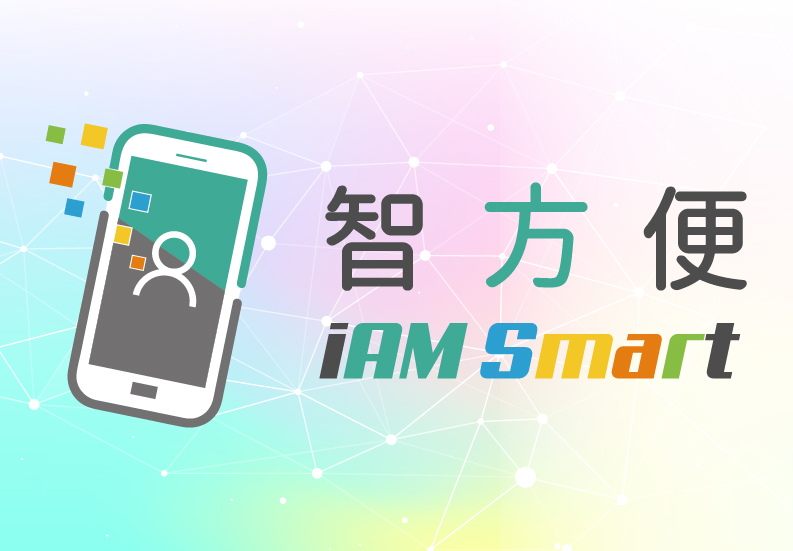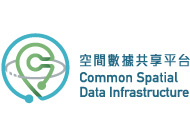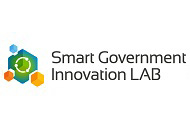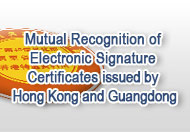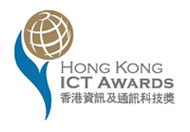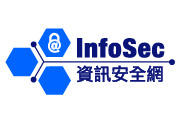Supporting Facilities
Unified Service Platform and Application
“iAM Smart”
The “iAM Smart” platform launched in December 2020 is a key digital infrastructure for developing digital economy and smart city in Hong Kong. It provides reliable identity verification function for members of the public to log in to their online accounts for using various government and commercial online services, conducting online transactions and performing digital signing with legal backing in a simple and secure manner.
To achieve the goal of providing a single government digital services platform through full adoption of “iAM Smart” by all departments by 2025 to facilitate citizens’ use of one-stop electronic government services, the Government is currently enhancing the “iAM Smart” platform to provide better service integration, optimise user experience, and develop more convenient services for citizens and businesses.
Digital Corporate Identity
The Government is developing a “Digital Corporate Identity” (CorpID) Platform to promote and facilitate enterprises in their use of “Government-to-Business” and “Business-to-Business” digital services.
The CorpID Platform facilitates corporations to undergo corporate identity authentication and corporate signature verification in a secure, convenient and efficient manner when using electronic government services and conducting online business transactions. Through authorisation, corporations can extract their data in the CorpID Platform and those stored in systems of other electronic government services for pre-filing of forms, hence alleviating the current paper-based and complicated procedures. This will alleviate the administrative burdens on corporations, particularly the small and medium-sized enterprises, in their business operations and accelerate the digital transformation of the overall businesses in Hong Kong.
Opening up, Sharing and Flow of Data
Open data provides raw materials for technology research and city innovation and facilitate the development of digital economy and smart city. With the advancement of information and communications technology, there can be active and creative value-added re-use of open data by the community if it is made available in digital format. Developing applications which use, mesh up or integrate various datasets can tap community wisdom and bring convenience to the public, promote innovation, create business opportunities and foster entrepreneurship.
The Government has launched the “Open Data Portal” website (formerly known as the "Public Sector Information") to make available government data in digital format for public use free of charge. As of June 2025, over 5 600 datasets across various sectors and industries are accessible on the site. Additionally, the public can conveniently search, view, and download more than 1 000 spatial datasets from different government bureaux and departments (B/Ds) through the “Common Spatial Data Infrastructure Portal” introduced by the Government in 2022.
The Government has established the “Interoperability Framework for E-Government” (IF) for B/Ds and related organisations to achieve interoperability in the exchange of electronic data and the development of integrated e-government services. The IF is primarily a collection of guidance documents, standards, and specifications that help B/Ds define the interface between interacting applications. Computer systems implemented on different hardware and software platforms by different B/Ds can interoperate with one another by adopting the IF.
As Chinese is the language used by most people in Hong Kong, the development of a common electronic interface for users who use Chinese in electronic communication is important. The Government has developed the “Common Chinese Language Interface”, which seeks to achieve more accurate electronic communication conducted in Chinese.
The “Address Data Infrastructure” establishes standardised, universally recognised location identifiers known as “GeoAddresses” for buildings or addresses. These GeoAddresses serve as a common reference for addresses stored in various languages, facilitating the interoperability and sharing of address information across different systems.
“Central e-Form Services” provides B/Ds with a one-stop e-form service, facilitating their developers to use the tools provided to create, test and publish electronic forms that support functions such as electronic payment and “iAM Smart” digital signing. This allows citizens to submit various government service applications via the Internet using mobile phones, tablets and computers, saving time and cost required for postage and personal delivery.
The “Consented Data Exchange Gateway” (CDEG) launched a function to link with the “Commercial Data Interchange” of the Hong Kong Monetary Authority in 2023 to facilitate data transfer from government departments to financial institutions upon the authorisation of the latter’s enterprise clients. In June 2024, the function was extended to enabling citizens to authorise government departments to share their personal information, thus providing more convenient and beneficial services.
Data play a strategic role in driving innovation and facilitating high-quality development of the economy. Under the framework of “One country, Two systems”, Hong Kong has a unique advantage in aggregating data from the Mainland and the world. The Government fully recognises the crucial role of data as a new engine in propelling our economic growth and transformation of digital economy and society. The 14th Five Year Plan indicates its solid support for Hong Kong’s development as an international Innovation and Technology (I&T) hub. Facilitating data flow in the Guangdong-Hong Kong-Macao Greater Bay Area (GBA) is an important initiative for promoting high quality development of the economy. The initiative is also conducive to driving the digital economy and smart city development, which paves the way for Hong Kong to integrate into development of the GBA and the nation.
The close tie between Hong Kong industries and Mainland business partners result in an increasing demand for cross-boundary services and data flow between Hong Kong and the GBA. The ITIB and the Cyberspace Administration of China signed the “Memorandum of Understanding on Facilitating Cross-boundary Data Flow within the Guangdong-Hong Kong-Macao Greater Bay Area” (“the Memorandum”) in June 2023 to promote cross-boundary data flow within the GBA. It is a policy breakthrough to leverage data flow to promote digital economic development, while at the same time protect personal privacy and data security. At present, industries of all sectors can adopt the facilitation measure on “Standard Contract for the Cross-boundary Flow of Personal Information Within the GBA (Mainland, Hong Kong)” on a voluntary basis for cross-boundary data flow.
In November 2024, the Government promulgated the “Development Outline for the Hong Kong Park of the Hetao Shenzhen-Hong Kong Science and Technology Innovation Co-operation Zone”. Insofar as facilitation of cross-boundary flow of data is concerned and on the premise of complying with the relevant national data security laws and regulations and where risks are under control, the Government will actively explore with Mainland authorities, expansion of cross-boundary flow of research data from the Mainland to Hong Kong for use by enterprises and organisations in the Hong Kong Park. The Government will also explore sharing of research data and mutual recognition of research and development data between the Hong Kong Park and Shenzhen Park of the Hetao Co-operation Zone. Moreover, the Government will explore the opportunity to leverage Hong Kong’s strengths to establish safe cross-boundary data flow management mechanisms, which will help promote the opening up of the data market, thereby facilitating the development of Hong Kong into an “international data hub”.
Common Data Platform
The Government’s internal network infrastructures provide stable, reliable and high resilience connections and common services to B/Ds.
Since 2020, the Government has rolled out a series of digital infrastructure projects including the Next Generation GovCloud, Big Data Analytics Platform, Shared Blockchain Platform and Digital Highway, etc., to support B/Ds’ sharing of the collected non-personal data, big data analytics and AI projects, with a view to making available more digital government services.
The Government has also established the CDEG to facilitate citizens and promote further data sharing among B/Ds. CDEG provides a unified data exchange channel, enabling personal information to be used for different applications with citizens’ consent as required under the “Personal Data (Privacy) Ordinance”. By exchanging personal data between B/Ds through systems and data interoperability, citizens are spared the need for re-input, thus enhancing convenience.
Data Centre
Data centres are the cornerstone supporting Hong Kong’s innovation and smart city development. Beyond the government data centres that drive the development of digital government, the Government is also very concerned about the industry needs for data centres.
To promote the development of data centres in Hong Kong, the DPO set up the Data Centre Facilitation Unit in 2011 to provide one-stop support services to enterprises interested in developing data centres in Hong Kong. These services include liaising with other government departments on matters such as statutory approval processes, compliance requirements or procedures.
The Cyberport has set up an artificial intelligence supercomputing centre to support the strong computing power needs of the local area. The first phase of the facility commences operations in December 2024, with the potential to fully enhance to a level of 3 000 PFLOPS by early 2026.
It was announced in the “Chief Executive’s 2023 Policy Address” the change of use of two hectares of land in Sha Ling, North District, for innovation and technology and related purposes. The ITIB and the DPO invited expressions of interest (EOI) from June to July 2024 for the use of this site and its nearby land carrying potential for development as a data park for data centres and related industries. Taking into account the location of the site, infrastructure planning, the supply of digital infrastructure facilities, as well as the industry’s demand, the Government is of the view that the two-hectare formed site and the surrounding area of about eight hectares with development potential (i.e. about ten hectares in total) can be developed into a data park for data centres and related industries. Subsequently, it was announced in the “Chief Executive’s 2024 Policy Address” the expansion of this site to ten hectares for data centre and related purposes, and the re-zoning process has already commenced.
The “Green Data Centres Practice Guide” (Practice Guide) aims to provide the best practices, with reference to local conditions of Hong Kong (such as climate and ecosystems) and international best practices, to set out energy efficient and environmentally friendly practices, thereby assisting data centre industry practitioners in identifying and implementing measures to improve the energy efficiency and environmental performance of their data centres. The Practice Guide is applicable to all data centres and covers the whole life cycle of the data centre.
As set out in the “Policy Statement on Facilitating Data Flow and Safeguarding Data Security in Hong Kong” , the DPO has formulated a “Practice Guide on Data Centre Security” to strengthen the security of data centre infrastructure.






